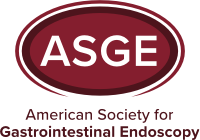Advanced Endoscopy Fellowship
Bon Secours St. Francis
1 St. Francis Dr.
Graduate Medical Education
Greenville, South Carolina 29601
864-537-2076 (V)
1 Position Available
Program Type: Both ERCP & EUS
Authorized Administrative Official: Bradley Hobbs
Program Director: Veeral Oza, MD (email)
Duration: 1 Year
Inclusive Dates of the Program: 7/1/2027 to 6/30/2028
Accepts applicants from outside of North America? Yes
Accepts applicants with J1 visas? No
Accepts applicants with H1B visas? Yes
Accepts applicants with E3 visas? Yes
Type of Interview Offered: Both In-Person & Virtual
Supervised ProceduresProcedure |
Faculty Involved in AEF Training | Total Annual Volume | Average Annual Volume with Hands-on AEF Involvement per Fellow |
|---|---|---|---|
| ERCP | 1000 | 1000 | 1000 |
| Diagnostic EUS | 500 | 500 | 500 |
| Interventional EUS | 500 | 500 | 500 |
| Bariatric endoscopy | 75 | 75 | 75 |
| Endoscopic management of GERD and Barrett’s | 200 | 200 | 200 |
Unsupervised Trainee ActivitiesProcedure |
Value |
|---|---|
| General GI procedures (per year) | 200 |
| Inpatient general GI service (weeks/year) | 4 |
| Inpatient advanced endoscopy service (weeks/year) | 0 |
| Ambulatory clinics (per year) | 0 |
| Committed time for research (days/month) | 3 |
Requirements for Application
- Standard ASGE Application Packet
- ASGE Application
- Post-Undergraduate Education
- USMLE Scores
- Certification of Completion of Residency
- Prior to appointment in the advanced endoscopy fellowship, fellows should have completed a three-year ACGME-accredited gastroenterology fellowship
- Fellows from non-ACGME-accredited programs must have completed at least three years of gastroenterology education prior to starting the fellowship
- Personal Statement
- Curriculum Vitae
- 3 Letters of Reference
Additional Information about Program
Advanced Endoscopy Fellowship
Overview
The Interventional Endoscopy fellow will be a PGY-7 fellow. Their salary will be at the GME pre-decided PGY-7 level. The goal of this fellowship will be to learn Interventional procedures, particularly EUS and ERCP, as well as luminal stenting, while further honing the skills acquired during the Gastroenterology fellowship training, such as performing Endoscopic Mucosal Resections for large polyps. As always, the fellow will be completely supervised by Dr. Oza (and any other fellowship-trained Interventional Endoscopists).
Principal Teaching/Learning Activities
The Interventional Endoscopy fellow (fellow) will perform all inpatient consultations in which an ERCP or EUS is requested or indicated, the fellow will be required to be intimately familiar with the entire clinical case, and will have to present the case to the Attending physician performing the ERCP or EUS. The fellow will perform the procedures under the close supervision of a skilled faculty preceptor. The fellow is responsible for all of the necessary preparation for the study, including issues in management of antibiotic prophylaxis and anticoagulation, and arrangements for General Anesthesia when appropriate. The fellow will follow up the patient post-procedure.
The fellow will also communicate closely with the APP on the GI consult service, and also keep the Attendings apprised of the clinical scenario.
Other advanced Endoscopic procedures which the senior fellow will be exposed to includes Pneumatic Dilation for Achalasia, Tumor Ablation, and Esophageal Stenting.
Problem Mix / Patient Characteristics / Types Of Encounters
For ERCPs and EUS, fellows generally see patients for the evaluation and therapy of biliary and pancreatic diseases. The majority of therapeutic cases involve either sphincterotomy with common bile duct stone extraction, biliary stenting of biliary or pancreatic neoplasms, biliary stenting of post-operative bile duct leaks, and EUS guided sampling of pancreatic masses or adenopathy.
Purpose and Principal Educational Goals by Competency
Patient Care
Principal Educational Goals
• Learn the proper indications, contraindications, special needs, and procedural preparations for core Interventional procedures, such as ERCP or EUS.
• Recognize and respond to the complications of diagnostic and therapeutic ERCP or EUS.
• Achieve procedural technical competence in the performance of ERCP, EUS And Luminal stenting.
• Learn the unique functions of the ERCP/EUS nurse procedural assistant.
• Understand utilization of the various the tools and devices available to tackle a certain procedural problem
• Correlate visual and pathologic findings at endoscopy/ERCP/EUS with clinical conditions.
• Fellows will be Exposed to Endoscopic suturing and will gain proficiency in basic suturing techniques.
• Fellows will also gain proficiency in TIF (Transoral Incisionless Fundoplication)
Please Note: All data in this program description is entered on a voluntary basis
